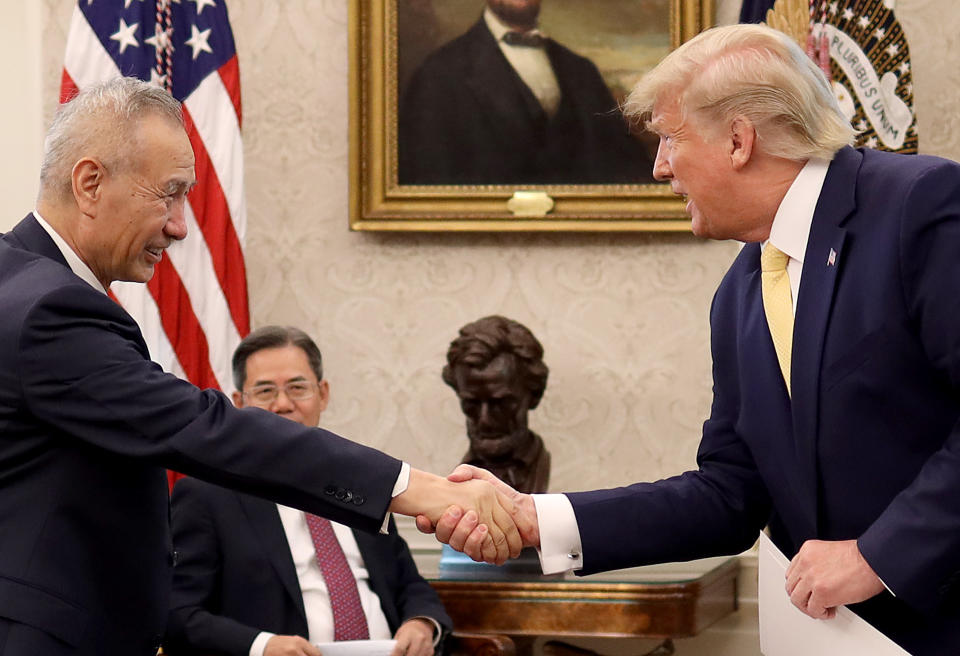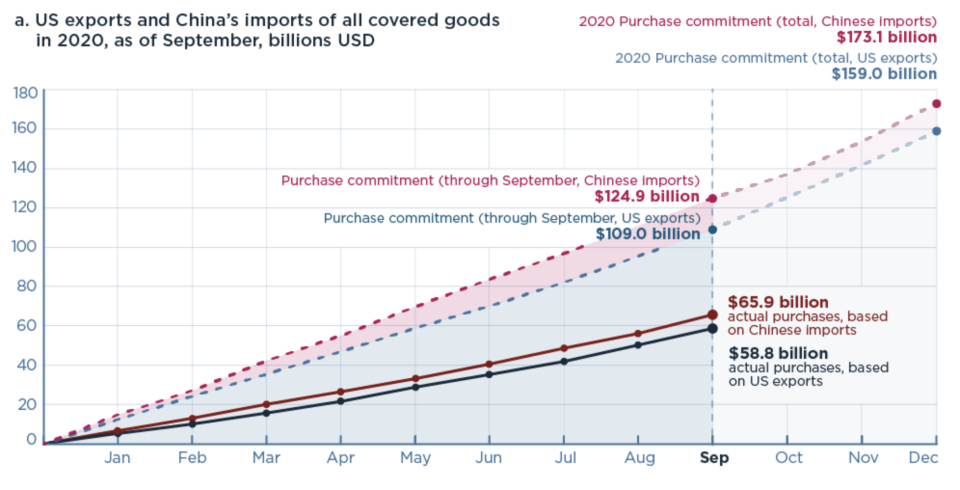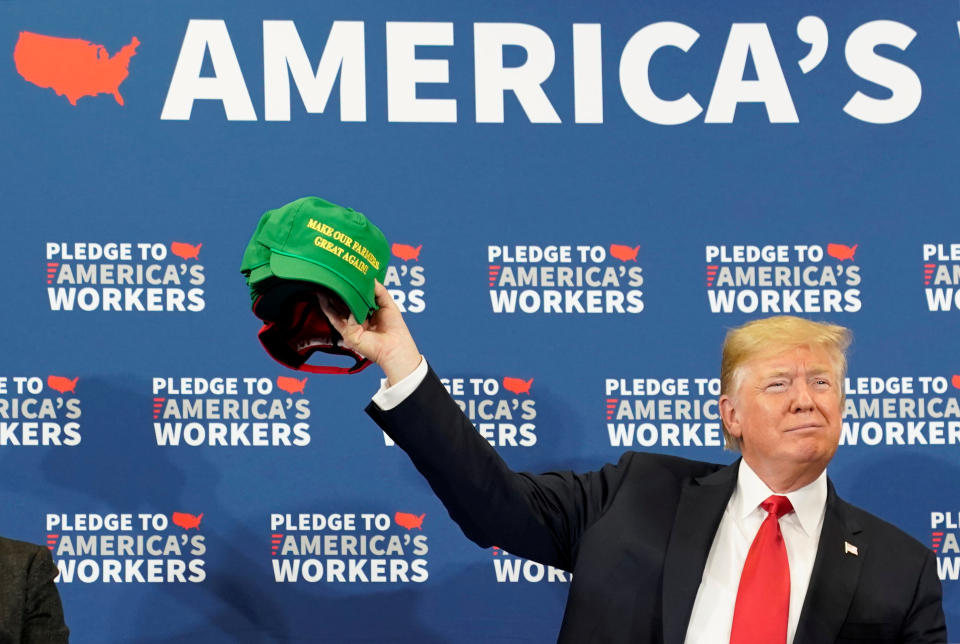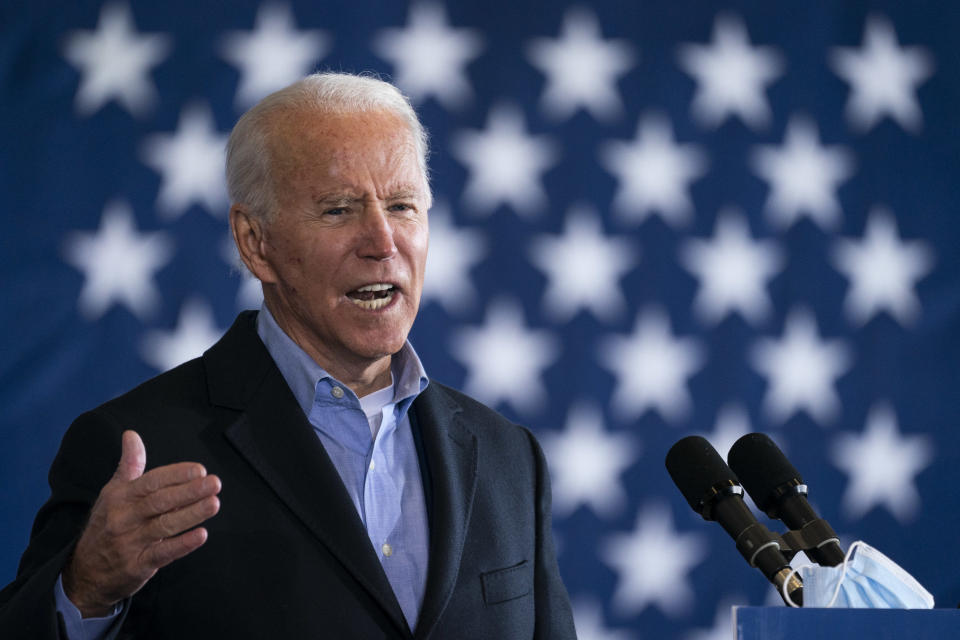Farmer on Trump's phase 1 trade deal: 'We’re nowhere near China reaching the commitments'
A key part of President Trump’s first term has been the U.S.-China trade war.
After the two countries spent over a year going back and forth with tit-for-tat tariffs, the leaders reached a phase one trade agreement in January 2020 after China promised to buy an additional $12.5 billion worth of American agricultural goods this year “based on market conditions.”

But China has only purchased a small share of those commitments, according to recent data. Because of that, Blake Hurst, a soybean farmer and president of the Missouri Farm Bureau, said Trump’s grade on trade was “an incomplete.”
“We’ve changed our approach to dealing with the Chinese,” Hurst told Yahoo Finance (video above). “We’ve seen two years of almost no exports to China. This year has been stronger after the signing of the phase one agreement, but we’re nowhere near China reaching the commitments they made in the phase one agreement.”
China’s purchases are at roughly 53% of their year-to-date targets through the first nine months of 2020, based on either U.S. exports and Chinese imports, according to calculations by the Peterson Institute for International Economics (PIIE).

‘Way too soon to tell’
Beginning in early 2018, Trump slapped tariffs on Chinese goods in retaliation for what he called unfair trade practices, like intellectual property (IP) theft. China responded with retaliatory tariffs and the two countries engaged in tit-for-tat tariffs over the next year.
Trump created a farmer bailout program using aid from the U.S. Department of Agriculture (USDA), but the results were still devastating for American farmers, who rely on China buying many of their agricultural goods, with soybeans being the most popular product. In 2019, U.S. farm bankruptcy rates increased by 20%, an eight-year high. There were a total of 595 Chapter 12 bankruptcies filed by family farmers, according to U.S. Courts data.
Despite trade hiccups and the economic fallout, farmers are predominantly support Trump in the 2020 presidential election (though a poll from DTN/Progressive Farmer of 500 farmers across the country found that support slightly waned in August).
“We’re a little bit better than we were three years ago on exports, but not a great deal, so maybe he’s made a difference, maybe he’s improved things for the long haul, but it’s way too soon to tell,” Hurst said.

‘I hope there’s a middle ground somewhere’
Hurst, like many other farmers, is hoping for a president that is tough on China without it leading to a full-blown trade war.
“I think it’s possible to be tough on China without putting in place tariffs that immediately lead to retaliatory tariffs aimed at agriculture, and that’s what we’ve seen,” Hurst said.
Darin Von Rudin, a dairy farmer and president of the Wisconsin Farmers Union, previously told Yahoo Finance that if former Vice President Joe Biden were to be elected president, farmers would become more optimistic over the promise of stability and the leverage that would come with “starting to work more and more closely with our allies versus pushing them away.”

On the other hand, he argued, if Trump were to be re-elected, farmers would become even more pessimistic about reaching a comprehensive trade deal with China since Trump consistently blames China for the coronavirus pandemic that began in Wuhan, China, and spread globally.
But no matter who wins in the election, Hurst said, there is still an opportunity to straighten things out.
“Whether it’s a second term of Trump or first term of Biden, they have the opportunity to continue to call China into account for the way they’ve treated intellectual property and other problems without totally destroying ag trade,” Hurst said. “I hope there’s a middle ground somewhere there that we can reach.”
Adriana Belmonte is a reporter and editor covering politics and health care policy for Yahoo Finance. You can follow her on Twitter @adrianambells.
READ MORE:
Despite trade war, most American farmers still support Trump 2020
Trump's farmer bailout is about to get a whole lot bigger amid coronavirus
Some farmers turn on Trump amid coronavirus pandemic and China tensions
Read the latest financial and business news from Yahoo Finance
Follow Yahoo Finance on Twitter, Facebook, Instagram, Flipboard, LinkedIn, YouTube, and reddit.

 Yahoo Finance
Yahoo Finance 